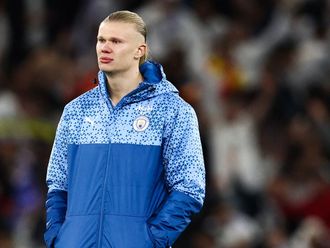WELLINGTON, New Zealand: Super Rugby organisers are concerned about the preparations of the Japanese expansion club which is set to join the southern hemisphere competition next season.
New Zealand Rugby chief executive Steve Tew said SANZAR, the tournament’s governing body, was confident the Argentinian club which will debut in 2016 will be competitive, but is worried about preparations at the Japan club and “nervous” about the strength of new South African team, the Kings. The inclusion of the Kings and teams from Japan and Argentina will expand Super Rugby from 15 to 18 teams.
“We are all very excited by what Japan achieved at Rugby World Cup but we remain pretty nervous about their readiness for Super Rugby,” Tew said. “They have not announced a coach yet so that is clearly an issue and they have not got a playing roster completely full. So they are the two issues they have to put their foot on the throttle for.”
Gen Fukushima, operations manager of the Japan SR Association which administers the expansion club, said the Japan setup was proceeding well.
“We are currently working on the announcement of players and a coach,” Fukushima said Friday. “The basic concept is to build on the strength of the national team. The Top League starts today and runs through January 24 so the players will be fit.
“We will have roughly one month to prepare as a team and that isn’t a long time but we just have to do our best. We are coordinating with SANZAR on a daily basis.”
The 2016 Super Rugby season will begin on February 26 and Japan’s Sunwolves are scheduled to play their opening match against South Africa’s Lions in Tokyo on February 27. Tew was concerned the Sunwolves are not leaving themselves much time.
“We are concerned about any expansion when you bring new teams into a competition and it takes a bit of time for it to bed down,” Tew said. “We are nervous about the strength the Kings will bring to that competition too.
“On the upside, it looks like the Argentinian side will be in very, very good shape, very well organised, very prepared (with) a very good playing roster. They will add some significant amount of colour to the competition.”
The 2016 tournament will be divided into three conferences, based in New Zealand, South Africa and Australia.
Japan has an existing 16-team Top League which attracts local talent as well as players from around the world who are either emerging as professionals or have played international rugby and are nearing the end of their careers.
Rugby is expected to grow in Japan following the success of the national team at the recent World Cup, where the Brave Blossoms opened with an upset victory over two-time champion South Africa, and because the country is hosting the 2019 World Cup.
However, the slow pace of development of the Super Rugby franchise has caused concern and key players, including World Cup star Ayumu Goromaru, have already signed contracts with other clubs.
The Queensland Reds, 2011 Super Rugby champions, signed Goromaru earlier this month. The fullback scored 24 points in win the over the Springboks, described as the biggest upset in World Cup history, and twice received man-of-the-match honours at the tournament.
The 29-year-old Goromaru, who has played his entire career in Japan’s Top League, will replace former New Zealand flanker Adam Thomson, who has moved to the Melbourne Rebels, as Queensland’s designated foreign player.
— AP








